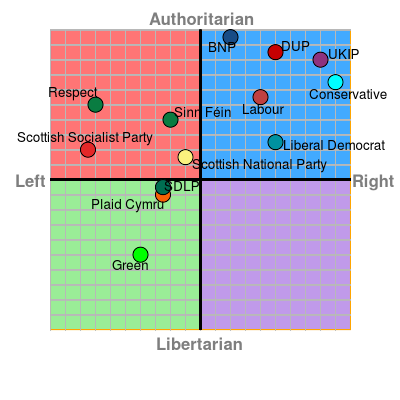UK Parties 2015 General Election

This may be the first election in which UKIP is popularly seen in its true colours – not as a protest party, but as a deeply conservative one that largely endorses the neoliberal agenda. Nigel Farage’s recent shift from unequivocal support for health care free at the point of use underlines this reality.
The Lib Dems are now widely — and correctly — viewed as a party of few fixed principles, and their vote this time may haemorrhage more to the Greens than to Labour. Labour has its own problems. Despite hopes from the left, the party leadership remains largely attached to the New Labour agenda that took the party to the centre ground in the late 1990s. At that time, around half the population supported the principle of a certain level of wealth redistribution. These days inequality, though greater, is less of an issue in the general shift to the right. Fewer than a third of the voters now believe in a helping hand to the least well-off.
Traditional Labour voters will largely stick to their old electoral habits, even though the Greens bear a far closer resemblance to the party they supported in the pre–Blairite days.
As we’ve pointed out in earlier charts, the BNP, lazily described as “extreme right”, is economically far from neo-liberal. Its extremism is reflected in its reactionary social attitudes.

